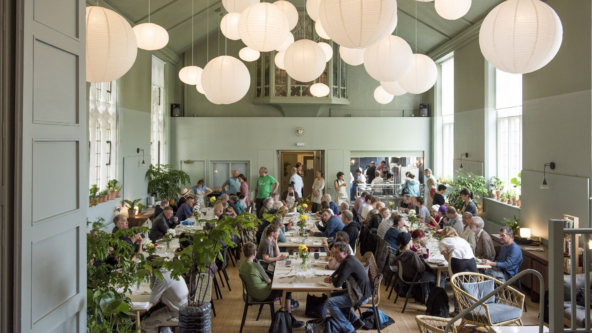Chloe Allan’s placement in Malawi saw her waving goodbye to the Octopus office (and her comfort zone) for five weeks. Here are Chloe’s tips for anyone considering the volunteering programme, delivered in partnership with The International Exchange (TIE).
I’d been travelling before. I even spent a ski season in Canada. But I had never been to Africa before, let alone choosing to work in a developing country and to live with a completely different family during my stay.
So, if you’d asked me before I went to Malawi whether I could live in such a different environment for a month or more, I’m not sure what my answer would have been.
But when Octopus Giving announced that it would be sending two Octopus volunteers overseas, as part of a new programme with The International Exchange, I decided I wanted to make my application and try to get involved.
And that’s probably one of the most striking realisations I’ve had since my time on the volunteering programme.
You never know what you’re capable of until you try.
I spent my time in Lilongwe, the capital of Malawi, researching, recommending and implementing changes to a programme aimed at encouraging the young people of the city to run their own businesses and earn their own money. And it was one of the best experiences of my life.
That’s why I’ve put this list of five tips together. It’s for anyone who’s considering applying for the programme but is unsure of what to expect.
1. Take the plunge
We can all be too self-critical at times. And if you’re like me, often you’re too busy finding reasons why you can’t or shouldn’t do something to see the potential benefits of making that leap.
I was sat firmly on the fence before I took the plunge and applied for the programme. As a Business Development Manager working for Octopus Investments, I wasn’t convinced that I had the transferable skills necessary for the TIE project.
But if you write yourself off before you’ve even begun, the only inevitable result is that you’ll miss out on opportunities. So, my advice is to dig deep and throw yourself in. By applying for the programme, you really have nothing to lose and everything to gain.
2. Be open-minded
The culture in Malawi was a sharp contrast to how we live our lives in the UK. But that goes both ways – my culture was alien to my Malawian colleagues and hosts too.
The way I managed to bridge this divide was by remaining open-minded and amenable. I made sure I took the time to learn about the local culture and stayed open to new ideas.
For example, a local pastor would visit us regularly to preach, and we would pray. This isn’t something I’d usually do at home, but I wanted to respect my host’s culture.
Similarly, I wasn’t used to eating a main meal with my hands. But I gave it a go (much to the amusement of my colleagues), and I’m really glad that I did, because it helped us to develop a bond.
3. Have confidence in yourself
There’s a danger that you can overthink things when taking part in a volunteer programme. It’s innocently done – you want to tread carefully and be respectful.
But it’s important to have the courage of your convictions, and to have confidence in your ability to be an agent of change – even if you’re worried that you won’t be able to make an impact.
During my placement, I was tasked with revamping an entrepreneur programme. After wrestling with the challenge in my mind, I realised that the only way to tackle it was to draw on my experience and use the same skills that I do in my day job.
So, I talked to the entrepreneurs and used their insights to redesign the programme. The solution we arrived at – setting up a loan facility for programme participants to borrow money from the charity – was the result of me taking a step back and leaning on my expertise. It proved to be invaluable.
4. Embrace the culture
Malawi is a former British colony, so it’s relatively easy to get by as a native English speaker. But they also have a local language – Chichewa – and my willingness to learn a few words was really useful when trying to build relationships.
It helped with everything from striking up a conversation with a taxi driver to developing a camaraderie with my Malawian colleagues. Language is a connection – a shortcut to building up a rapport with the people you will meet on your placement.
5. Keep a daily diary
My volunteer experience was an exhilarating, dizzying blur. At times it seemed as though it went by too quickly, while at the end I felt I’d been in Malawi much longer than five weeks.
To capture all those fleeting moments, it’s really important to keep a daily diary. It’ll be invaluable when you want to reflect on your experiences after you’ve returned home.
My advice would be to write it all down. Everything from funny new sights and sounds to how you were feeling at the time, and cultural observations. Anything that helps preserve the moments that matter.
So, there you have it: my five tips to survive and thrive on your volunteer programme.
My trip has had a real, resonating impact on my life. Not just personally. It’s changed the way I look at myself in my job and has given me more confidence.
And for that reason alone, it’s well worth taking a trip outside your comfort zone.
Find out more about the impact Chloe and other volunteers have made across the world by visiting The International Exchange.


